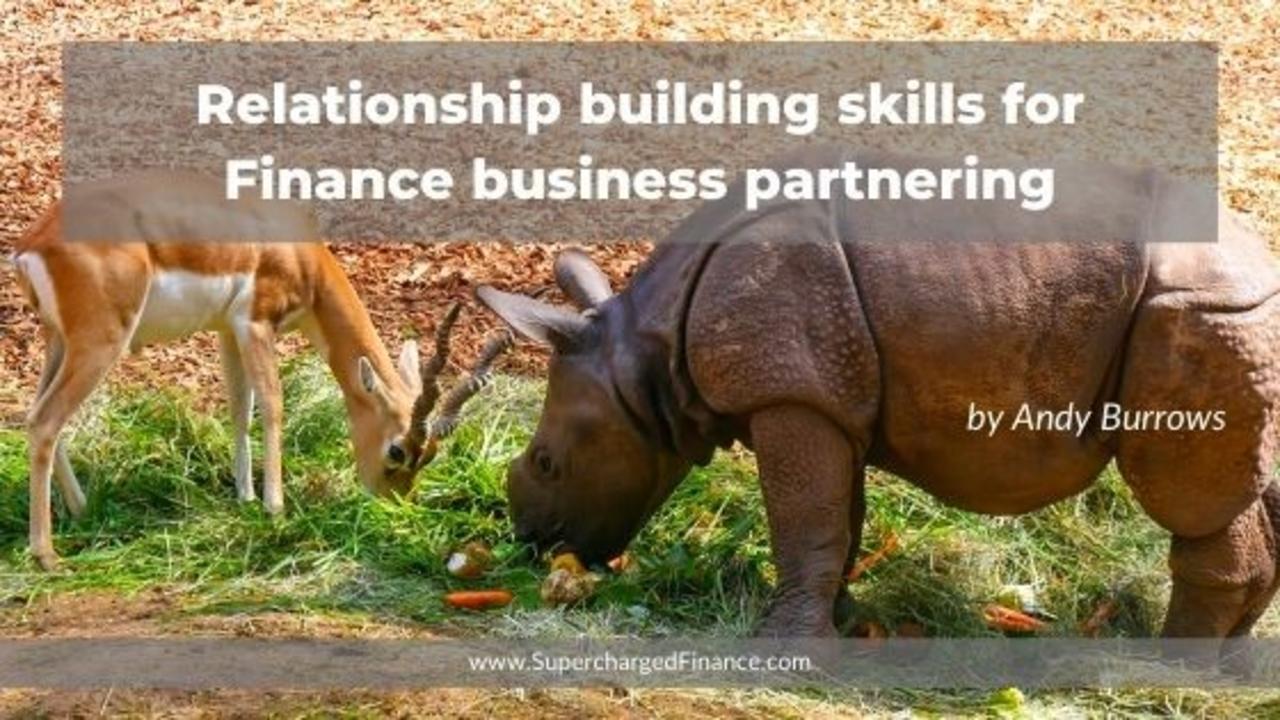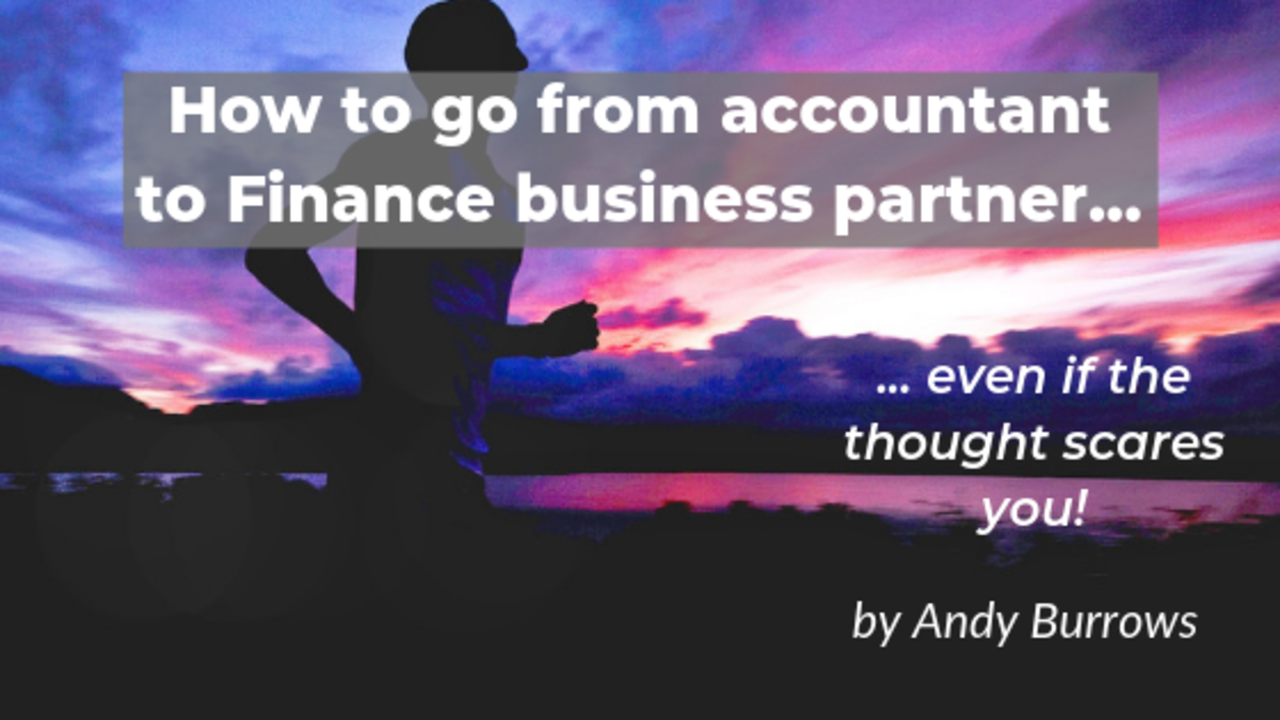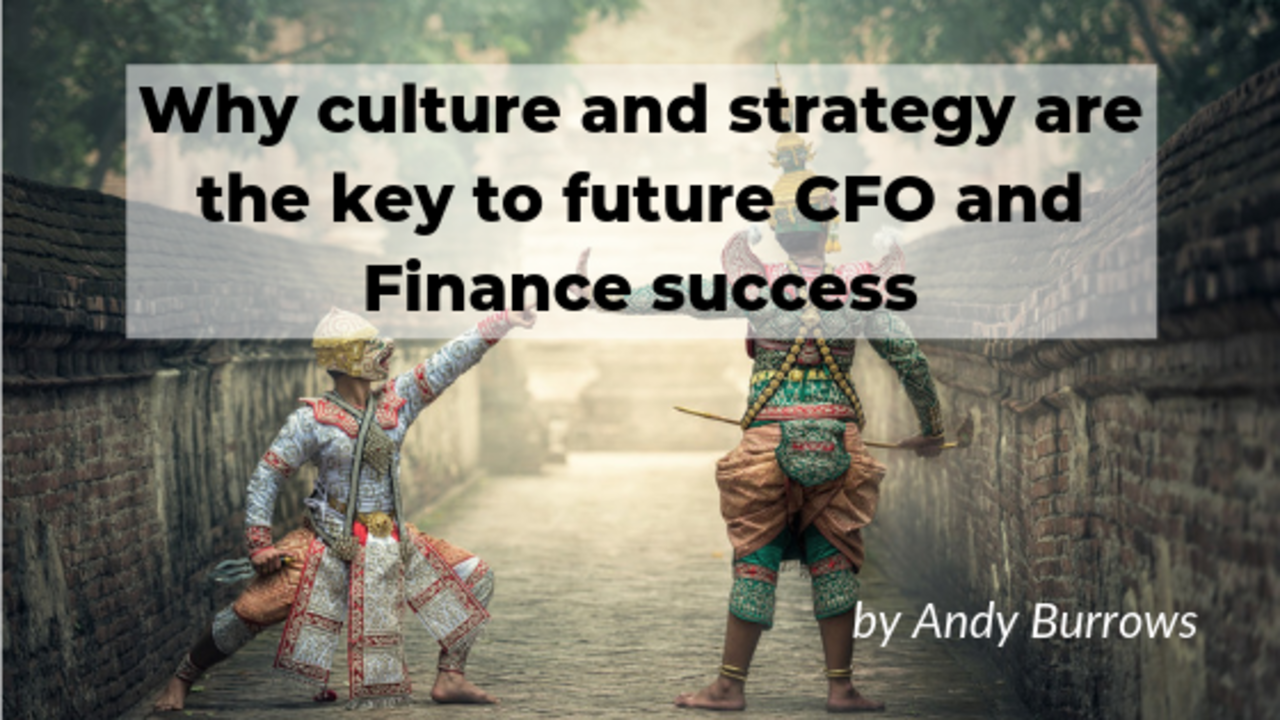Great CFOs listen without prejudice

By Andy Burrows
Communication skills, from lots of viewpoints, are not only something that CFOs benefit from. They’re skills for life, and skills for leadership.
That’s the same with any of the “personal effectiveness” skills I’ve written about in my previous few articles. I’ve directed them towards Finance business partners and CFOs, because those are the people who I hang around with most, professionally.
But, in reality, when we talk about “gravitas” or “maturity”, or even “credibility” or “presence” – i.e. the kinds of things that make people listen to you and take you seriously as an adult, rather than a young upstart, all seem to come back to some version of the few things I’m describing as “personal effectiveness”.
So, let’s have a think about communication skills.
Four types of communication
And let’s narrow it down further. There are four types of communication: reading, writing, speaking and listening.
Reading, writing and speaking are abilities and skills that we take...
Relationship building skills for Finance business partnering

By Andy Burrows
Today, I want to talk about relationship-building skills as a Finance business partner. And I want you to come away with tangible ideas as to how you can improve the way you build relationships.
If you’ve followed this loose series from the beginning, where I pointed out that Finance business partner is the new best route to a CFO role, you’ll know that I mapped out the three skills areas that are common throughout the continuum from Finance business partner to CFO.
And what I’ve done then is to focus in on one really important area of behavioural skills that I believe is the key to all the rest – “personal effectiveness”. And I’ve spent the last three articles expanding on the foundations.
And you may have found it quite weird that I started with skills that are very much individual personal skills. I mean, Finance business partnering is fundamentally all about dealing with other people. And so, you might expect that I’d be focusing on interpersonal skills, like in...
The best Finance leaders choose important over urgent

By Andy Burrows
I’m continuing a series where I’m trying to show the power of some key ‘soft’ skills that Finance business partners should learn, and CFOs should have.
Today, I hope to show you how to make time to focus on what’s important. This is not simply prioritisation. And whilst you may feel that you’ve heard most of it before, I’m going to finish up by showing you why your prioritisation is probably not working in your daily organisation.
What I’ve said so far is that the core of the behavioural skills you need are all about “personal effectiveness”. If you can’t lead yourself personally, how can you lead or influence others as a Finance business partner or CFO?
There is a real difference between average Finance business partners and the high performing, highly effective Finance business partners and CFOs.
Average Finance business partners continually complain about not having time to do business partnering because they’ve got too much number crunching to do. On the other ...
Setting the destination and direction – a big CFO skill

By Andy Burrows
I’d like you come away from this article knowing how to get a clearer or renewed sense of direction.
Not only that, but I hope that you will have learnt some insights into how you can assess and define the direction you want to go in both your life and work.
Clearly, I write to Finance people, and I’m addressing this article to those who are somewhere on the continuum between Finance business partner and CFO or who want to embark on that journey. However, I’m going to be talking about principles that can be used in pretty much any walk of life or work.
The important context
This is the fourth article in a series. The first two establish the context.
So, I started by pointing out that Finance Business Partner is the new best route to a CFO role. In that article I was establishing the need to better define and support one of the most important development pathways post-accountancy.
Next, I outlined from recent literature and my own research and experience the three...
Finance leadership and influence starts with this one simple thing

By Andy Burrows
What you are reading, whether you realise it now or not, could lead to a turning point in your career. And I’m confident that I’m not overstating the case.
I count this as one of my most important articles to date, because what I want to talk about is something that I learnt that revolutionised my thinking about 15 years ago.
I hope that I manage to get this across clearly to you, because the things I’m going to talk about can:
- Be a foundation for growth in your career;
- Start to give you the confidence to do bigger things and make quicker progress;
- Give you the ability to build new and more productive habits.
So, I hope that I manage to spark something important for you here in this short article in the same way that someone did for me during a 3-day leadership programme 15 years ago.
Are you stuck as a Finance business partner or CFO?
So, let’s first consider where you are now.
Do you find yourself complaining that you can’t do much Finance business partn...
If you want to be a CFO, develop these 3 skills...

By Andy Burrows
There are three areas of skills you need to develop if you want to be a good Chief Financial Officer or Finance business partner – business acumen, technical skills and behavioural skills.
And my intention is to unpack these three areas a little bit, so that you can get to grips with planning your development journey more effectively.
In another article I shared my belief that Finance business partner is the new best route to a CFO role. That is to say, core CFO skills are Finance business partnering skills. And well-developed Finance business partnering skills are what you need to be a CFO.
(To be clear, I’m not intending to imply that Finance business partners can progress to CFO level without some training and experience in accounting, reporting and control – sorry if I’ve ever given that impression.)
That’s why I’m talking about the two together, and why I believe that if your ambition is to be a CFO, you ought to be thinking about the same areas of skill that Finance bu...
Why Finance Business Partner is the new best route to a CFO role

By Andy Burrows
This will not be news to some of you, but taking a route through Finance business partnering is now the best way to achieve your ambition of getting into a CFO role.
It used to be the case that financial control and reporting was the established path to the Chief Financial Officer’s chair. A solid Financial Controller was seen as not only the CFO’s right hand person, but the CFO’s natural successor.
This, I believe, is not the case any more.
And the reason for writing an article about this is that it helps in guiding your development plans and career plans. At its most basic level that equates to thinking about the job moves you choose, and the courses you choose to take, after completing your accountancy qualification.
But, what’s changed to give rise to these changes in career paths?
The CFO is now more strategic
Firstly, the CFO role has become more about strategic partnering with the CEO and the Board, to maximise the performance of the business. I’ve pointed...
How to become a great Finance business partner... even if the thought scares you!

By Andy Burrows
Feel the fear and do it anyway!
Many of those who observe and comment on the state of the Finance function in general portray Finance people as being fearful of change.
The hype around robotic process automation (RPA) and artificial intelligence, the explosion in different tools on top of the ERP system and Excel, the speed of business change, and the cost pressure on Finance, add up to a significant feeling of uncertainty.
I have to say, when I work with Finance teams, I don’t necessarily feel that fear tangibly. People seem to get their heads down and work hard, and grab automation opportunities with both hands as something that will make their lives easier.
But I think it’s the way we characterise or explain things.
You see, I don’t think Finance people are fearful of losing their jobs, which is often the way it’s expressed by commentators (like myself). I’ve lost my job several times in my career – and it’s a freakin’ pain in the butt! But that’s the way thing...
Why culture and strategy are the key to future CFO and Finance success

By Andy Burrows
I do quite like that saying (originated by Peter Drucker), “culture eats strategy for breakfast!” I’m not quite sure what it means exactly... but it conjures images of tasty eggs, bacon, sausages, and maybe a couple of slices of toast, so it makes me smile!
But what of culture and/or strategy in the Finance function?
I’m going to argue in this article that Finance is increasingly under pressure to change. Or, more positively, we’re presented with an opportunity we should be reaching for more confidently than we are.
And that’s the opportunity to be involved in business decisions, the opportunity to drive business performance through helping to improve performance management.
The irony is that it’s the CFO who often stands in the way of the Finance fulfilling its potential to help the business and create value. And that’s because the CFO often has cultural blind spots and strategic blind spots.
The drivers of change in the CFO role
The CFO’s role has changed over ...
Is the drive for efficiency actually making Finance any better?

By Andy Burrows
In the generally accepted paradigm for the Finance function, where Finance is an overhead that needs to be kept down and reduced constantly, efficiency is often the name of the game.
And the ways we get efficiency are normally through simplification, standardisation and automation.
Those three words were the mantra of a Finance Transformation programme I once knew. And it’s a great mantra!
We don’t want to be adding layer upon layer of complexity. We don’t need to have multiple ways of doing exactly the same thing. And why would we do something manually when a computer can do it for us?
But…
We need to be careful. There is such a thing as oversimplification. And even as we shave more costs out of the P&L through simplification-driven efficiency, there can be bigger negative impact on overall performance.
Let me explain…
Why Simple Wins… But Not All The Time
In her book, Why Simple Wins, Lisa Bodell talks about what she calls, “internal mindset bias”. This is wh...




